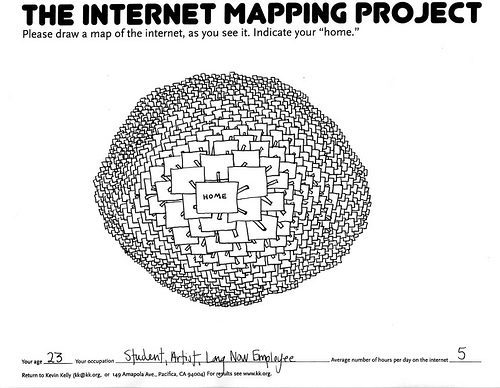You know we’re in dire straits when Tim Berners-Lee, father of the World Wide Web, says we no longer fully understand the Internet.
But Wired magazine founder and chronic digital culture explorer Kevin Kelly has set out to dissect the fabric of the web. His Internet Mapping Project is an effort to understand how people conceive of the Internet through a series of user-submitted hand-drawn maps.
The internet is intangible, like spirits and angels. The web is an immense ghost land of disembodied places. Who knows if you are even there, there. Yet everyday we navigate through this ethereal realm for hours on end and return alive. We must have some map in our head.
So far, there are close to 80 submissions by people of all ages, nationalities and expertise levels, ranging from the concrete to the conceptual to the comic.
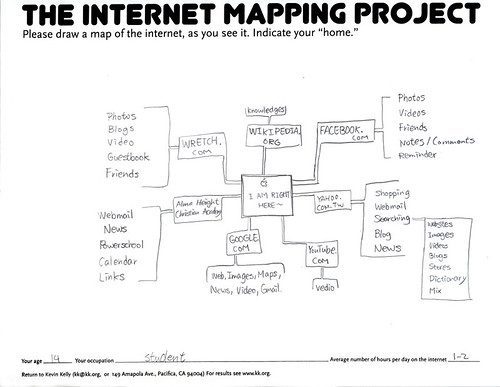
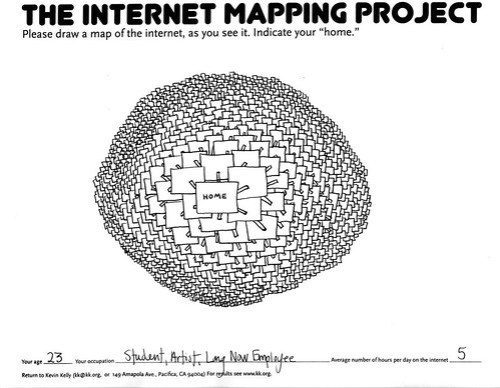
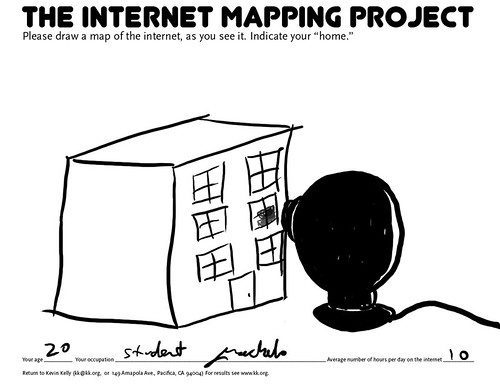
The project has also sprouted further analysis of people’s understanding — Argentinean psychology professor Mara Vanina Oses has distilled a fascinating taxonomy of the maps themselves.
Our favorite submission is a visceral stride-stopper that manages to communicate the nature of the Internet with brilliant simplicity, capturing the sea of interestingness that surrounds our homebase of curiosity.
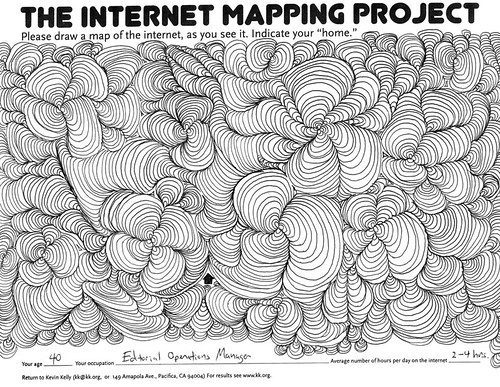
Each submission asks for the person’s age, occupation and average daily hours on the web. And while the diversity of entries is astounding — from an art student to a jazz musician moonlighting as an IT consultant to the manager of the 10,000 Year Clock project — we did notice some interesting correlations.
Those who spend the most time online, for instance, have the most abstract of drawings — perhaps an indication that a truly rich understanding lives in the realm of the abstract and conceptual, not the concrete, providing a big-picture view not of what the Internet does or offers, but of what it is: An infinite loop of possibility.
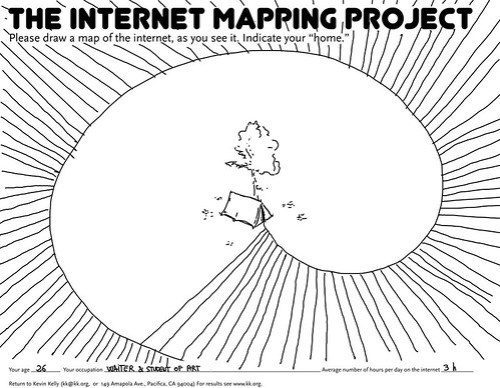
At the same time, those who spend the least amount of time tend to put themselves at the center of the Internet — a sign of the “developmental psychology” of the web, wherein “web toddlers,” just like real 1-4-year-olds, adopt an egocentric worldview, while “web adults” are better able to shift perspectives and see the collective context of it all.


